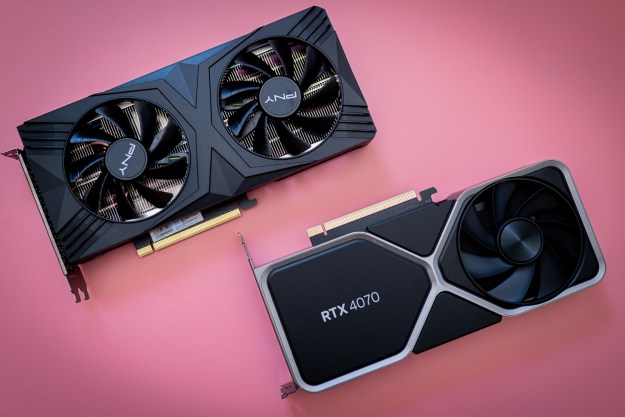
Gamers looking to pick up Nvidia’s new GeForce RTX series graphics card for its ray tracing capabilities may want to steer away from the low-end variants. There’s speculation that because of the taxing hardware demands of ray tracing, Nvidia may limit the new ray tracing capability to its higher-end cards.
“The cards will come out; we’ll start with the ray tracing cards,” Nvidia CFO Colette Kress answered during a Q&A session at the Citi 2018 Global Technology Conference. “We have the 2080 Ti, the 2080, and the 2070 overall coming to market. This is a major leap in terms of something that people probably weren’t expecting for another 10 years to 15 years.”
Kress’ statement about how Nvidia will start with the ray tracing cards and subsequent listing of the Nvidia GeForce RTX 2080 Ti, 2080, and 2070 cards led Hot Hardware to theorize that the entry level RTX 2060 card may not support
“In a game like Battlefield V, with NVIDIA RTX enabled, the game runs at just over 60fps at 1,080p and between 40 to 50fps at 1,440p (in pre-release form with unfinished GPU drivers),” the site said. “When you crank the resolution to 4K, you’re looking at below 30fps with a GeForce RTX 2080 Ti.”
On lower end RTX chips where gaming performance would suffer with ray tracing enabled, Nvidia may choose instead to drop support for the feature, Hot Hardware speculated. If this is true, Nvidia’s
Still, it might be a while until we learn more about Nvidia’s plans for the RTX 2060 and details about capabilities and features of that GPU model. Segment Next speculates that the RTX 2060 may not launch until next year to give Nvidia time to clear out inventory of its existing chips. If you don’t need the performance gains and the ray tracing capabilities from the RTX series, you may be able to score a bargain on Nvidia’s existing GTX series graphics cards.
Editors' Recommendations
- Nvidia is bringing ray tracing and DLSS 3 to your car
- How to watch Nvidia’s launch of the RTX 4000 Super today
- What is ray tracing, and how will it change games?
- Nvidia’s RTX 4060 might not be such a disappointment after all
- Nvidia’s RTX 4060 might arrive sooner than expected



